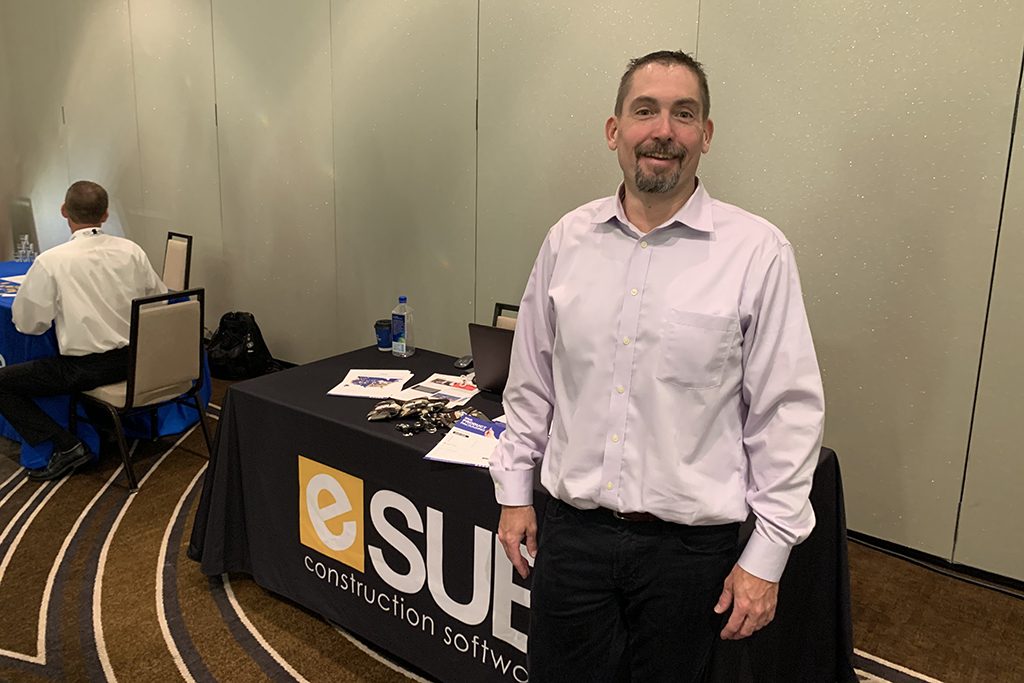Technology will revolutionize the construction industry, but only if it puts people first.
That’s the message Esub Construction Software director of strategic accounts Jeff Sample gave to attendees at the Mechanical Contractors of Canada conference held in Nashville, TN.
Sample’s session, “Construction Technology – Through the Looking Glass” examined how new and developing technological trends are affecting the industry, but he stressed without leadership and culture are the most important factors when pursuing change.
“It is people, process and then technology. It has to go in that order,” Sample said. “If you don’t have the right people you don’t have a full view.”
Sample added without buy-in from all parts of the company, technological solutions for field work will be ineffective.
“You need leadership to have that conversation, and payroll is where that timecard ends in a paycheque that ends up in your account. If you don’t have all those stakeholders, you’re opening yourself up for failure,” Sample said.
Data is a valuable resource and the construction industry has more data than most industries but it is predominantly stuck on paper documents and needs to be digitized, he added.
“The thing about construction is that they’ve been collecting data for years, it’s just in the carbon locker. By digitizing it and putting it into a format in which we can digest it, it can really transform us because it will give us insights. We can take all that information in the past and figure out where we came out well with the estimating,” Sample said.
“But wouldn’t it be better if we knew where we were accurate and where we weren’t, so we could make better estimates up front and then take that information and see how we did against it,” he added. “Data really unlocks that and focuses on what’s ahead.”
New, more inexpensive technology is also making data more accessible at a lower price, Sample said. Where once laser scanners were used to get a three-dimensional representation of a built space, new techniques like photogrammetry mean equivalent data can be pulled from a series of photographs.
“Now, with the computing capabilities we have with photogrammetry, we can take all the photos everyone’s taking on a site and this is where transparency and sharing is so important,” he said. “We can actually paint using computer vision a model without having to do laser scanning. That’s what’s happening and it’s happening at lightning speed.”
Virtual reality will also change training because it will mean people can learn from within the machine.
Sample also pointed to robotics as a new field for the construction industry but said humanoid robots like Boston Robotics Atlas model aren’t the machines that will benefit the industry. Amazon uses large variants on the Roomba vacuum robot to guide shelves of goods back and forth across their warehouse, and Sample said this is a better example of efficient use of robotics.
Sample also said the coming wave of retirements could be used to benefit both those leaving and coming into the industry. Older workers know how to build, and younger workers know technology.
“If you have older people as consultants, they can move to a desk job, train the new generation and everybody wins,” he said.











Recent Comments